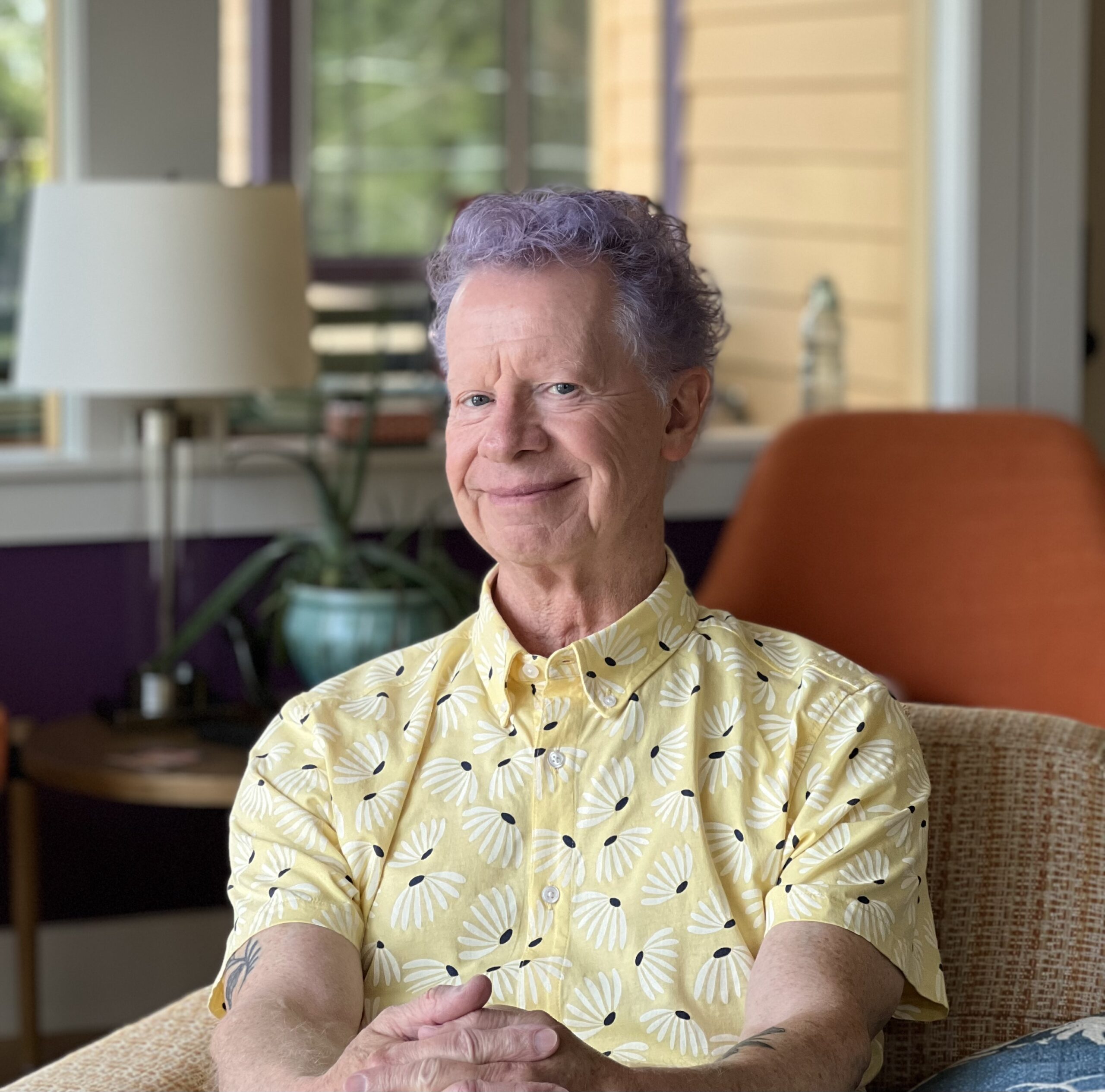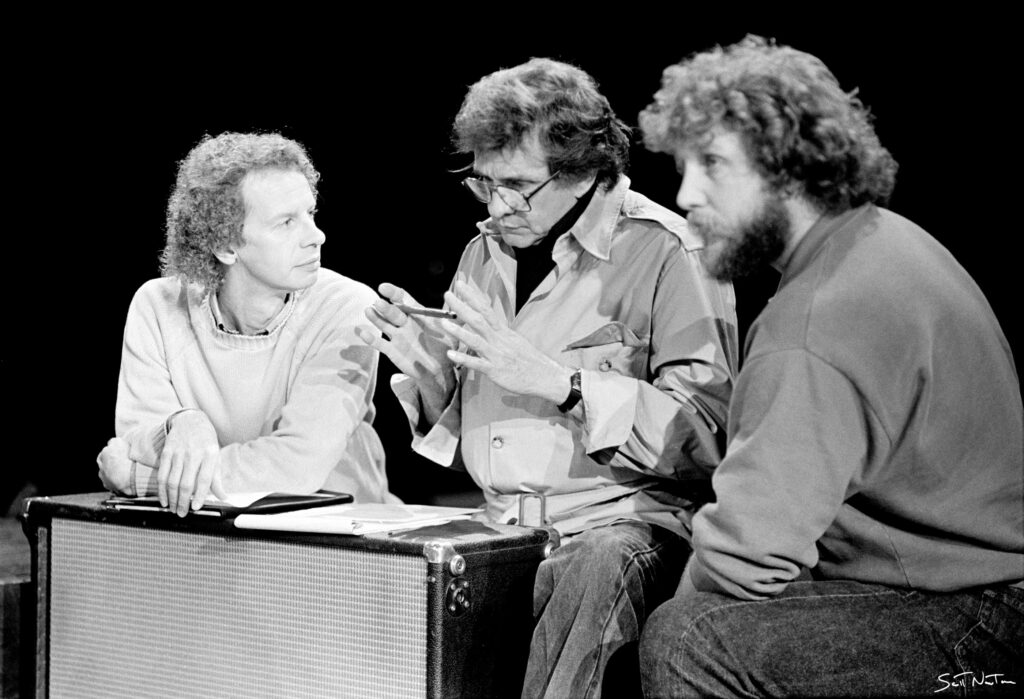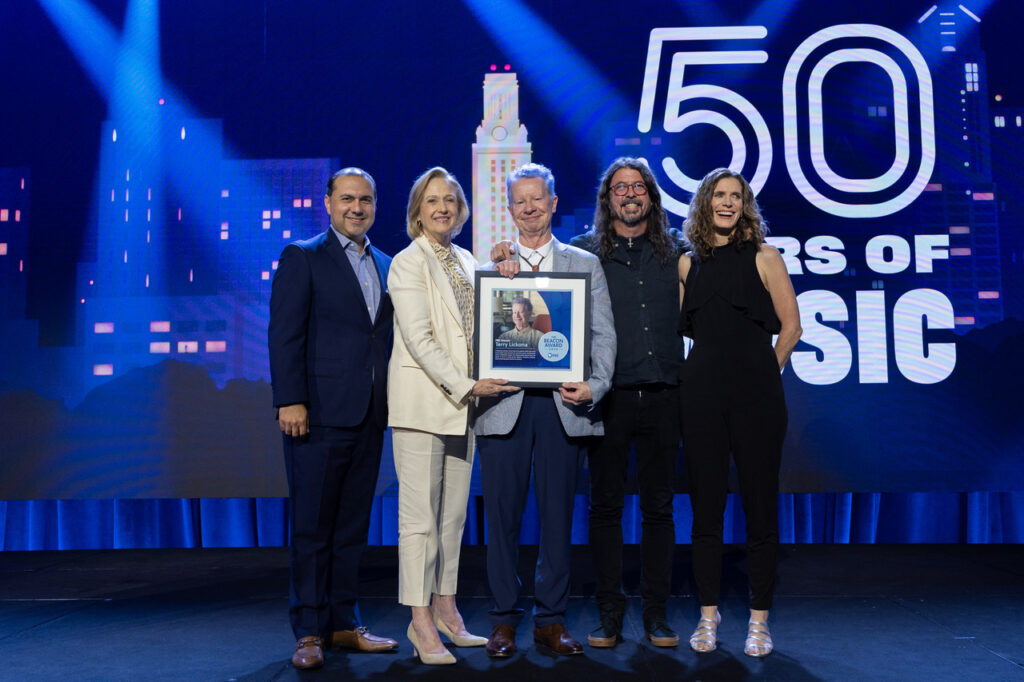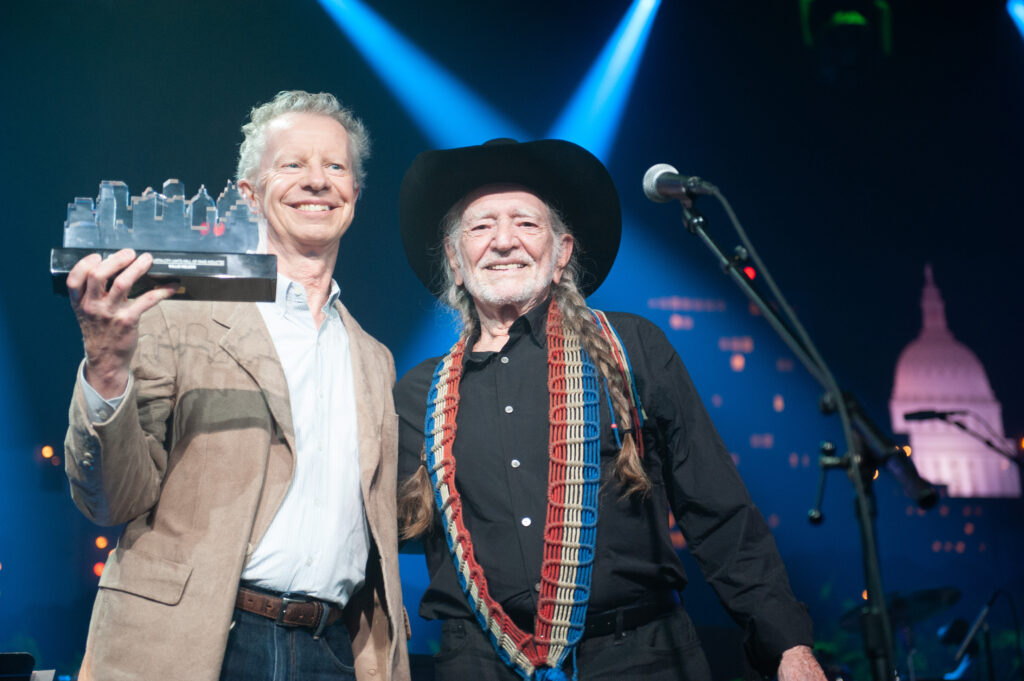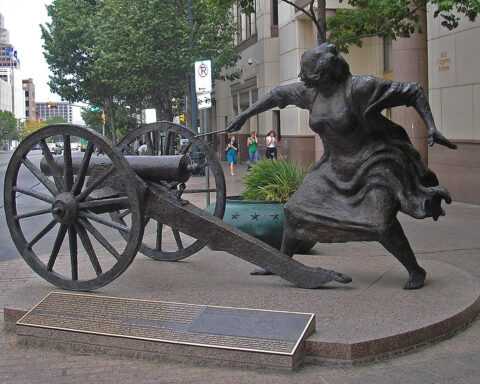Terry Lickona
By Forrest Preece
How does a guy from Poughkeepsie, New York become an icon in Austin culture and the producer of Austin City Limits, the longest-running music series in television history? The spinning wheel of fortune takes some remarkable turns – and when his chance rolled around, Terry Lickona grabbed it with both hands.
Some background -- during his boyhood, Terry lived in the orbit of New York City, listening to the great disk jockeys like Cousin Brucie on WABC. When he went to college at State University of New York Albany, he joined the radio club and then started on-air shifts at the campus radio station. That led to radio jobs back in Poughkeepsie.
In 1974, a friend who headed a country and bluegrass band acquainted Terry with Willie Nelson’s music. On a whim, they decided to drive to Austin for Willie’s Fourth of July Picnic at The Texas Speedway. The crowd was enormous, and Terry says that he was the “hottest he had ever been,” but he loved the whole vibe. When his pal said that he wanted to move his band here, Terry decided he would follow along.
Radio work in Austin wasn’t as easy to come by as he thought, and Terry had to take any menial job he could scuffle up for a while. Finally, he almost got an offer from KLBJ-AM. But at the last minute, he decided to go work at KUT-FM instead, a move that set the stage for the rest of his life. He was pulling late night on-air shifts, spinning jazz and bluegrass songs, while getting acquainted with other people in the complex, including the crews at KLRU-TV. As luck would have it, the TV station had just started a unique program called Austin City Limits, featuring local musicians doing concerts on a stage with a live audience. The first ACL show starring Willie Nelson aired in 1975, three weeks before Terry started at KUT. No one knew quite what to do with the show, and about two years later, the people who were producing it quit, seeking more stable jobs.
The golden ring was dangling out there and Terry went for it. He convinced management that he knew enough to get traction with the show and that it would be “cheaper to hire me than somebody who really knew what he was doing.”
In that first stretch around 1977, the anti-Nashville, Cosmic Cowboy era was at its peak, with the Armadillo going full tilt and acts like Jerry Jeff Walker and Michael Murphy in their ascendancy. But soon, things cooled off on that front, and Terry realized that they would have to start stretching to keep the show fresh. “I started booking talent from New Orleans, California, the East Coast, wherever,” he says. The first act in this vein was Tom Waits. Then they hit the jackpot when Ray Charles agreed to do the show. Based on his good experience, other big-time acts followed. Terry says that the shows they have presented for five decades make for a gumbo of musical styles and that viewers would be disappointed if they stuck with one genre. “That eclectic blend has been key to ACL’s success.”
Has Terry ever been approached by PBS stations in other cities to start their own version of the show? He has, but he hinted that the places were not the obvious big music cities like New Orleans or Nashville or Seattle. The problem is, none of the places that have expressed interest in creating their own version of an Austin City Limits have been able to generate adequate funding, land the knowhow and contacts to book the right mix of acts, or create the right promotion.
Obviously, one offshoot from the TV show that actually did work – bigtime -- was the ACL Festival. In 2000, after the Aqua Festival had run its course, the company that belonged to Lance Armstrong approached KLRU about using the ACL name for an outdoor concert in Zilker Park. They wanted to book the same kind of groups and music the TV show was presenting. Using the show’s name would give them instant credibility. They all agreed, and the ACL Festival has gone on to be successful beyond its producers’ wildest dreams – or Terry’s. He adds that the festival has enhanced the TV show’s brand and rejuvenated it, boosting it to even wider recognition.
Nothing lasts for 50 years without struggles – the show has had some times of decreased funding and they were losing audience before Terry decided to change things up back in the early days. Furthermore, even with all their momentum, the pandemic almost cratered the series. Terry can smile about it now, but they managed to tape seven shows in 2020 without an audience – The Mavericks and Ray Wylie Hubbard among them. All of these “pandemic stage” groups put on fine performances in spite of the diminished setting, and they kept the show alive.
Tweaks? Changes? Back when MTV and VH1 came around, Terry and his staff took a lot of pushback about how this new type of programming would squash their full concert format. They toyed with ideas like inserting biographical snippets or interviews between songs and maybe having other artists do concerts featuring one famous musician’s songs. But people want the full concerts, that’s the brand, and do you hear that much about MTV or VH1 any longer?
Now, technology is on ACL’s side. Streaming gives them an audience with no geographical boundaries. “PBS is limited to the US, but if we can stream shows, people can watch them in Tanzania or Australia,” Terry says. “And if we can find a way to let people hear one or two songs at a time, respect contract rights, and treat the artists fairly, we will seriously think about that.”
In his spare time (hah!), Terry is involved with The Recording Academy, which produces the Grammy Awards. About a decade ago, he was chair of its board of governors. He has stepped down from the board, but he still plays a significant part in producing the awards shows—both the Grammys and Latin Grammys. “I’m the luckiest person in my field to be producing all these shows I love.”
Here are some impressions of ACL artists, gleaned from more than 1000 concerts.
One of the most humble artists imaginable. Before sound check and rehearsal, he went around to everyone on the crew, shook hands, and introduced himself. Just before the show was about to begin, Terry saw him over in a corner, looking unsettled. He went over and asked if he could help. Cash replied, “No, this is a real music show and I just really want to get it right.”Johnny Cash
Back in the day, Terry would sometimes pick up artists at the airport himself. On the way to the Driskill with Prine, Terry asked him if he would like anything. Prine said, “Well, if you could make a stop and get me a bottle of Jack Daniel’s and a carton of cigarettes . . . “John Prine
One of the most powerful voices ever. Never heard her hit a bad note. A joy to work with.Brandi Carlile
The first time she was on ACL, she came offstage in tears, thinking she had done a bad show. Terry sat her down, they played the tape, and about halfway through, she smiled and said, “I guess it’s OK!” He adds that a lot of artists don’t like doing television – that’s why they soften the environment with a live audience.Bonnie Raitt
After the sound check, they lost track of him and as showtime approached, they were getting nervous. After searching around, a crew member found him asleep on a couch backstage.Tom Waits
Even after he hit it big and was worth a king’s ransom, he was calling Terry “Mr. Lickona.” Terry finally had to tell him that wasn’t necessary.Garth Brooks



